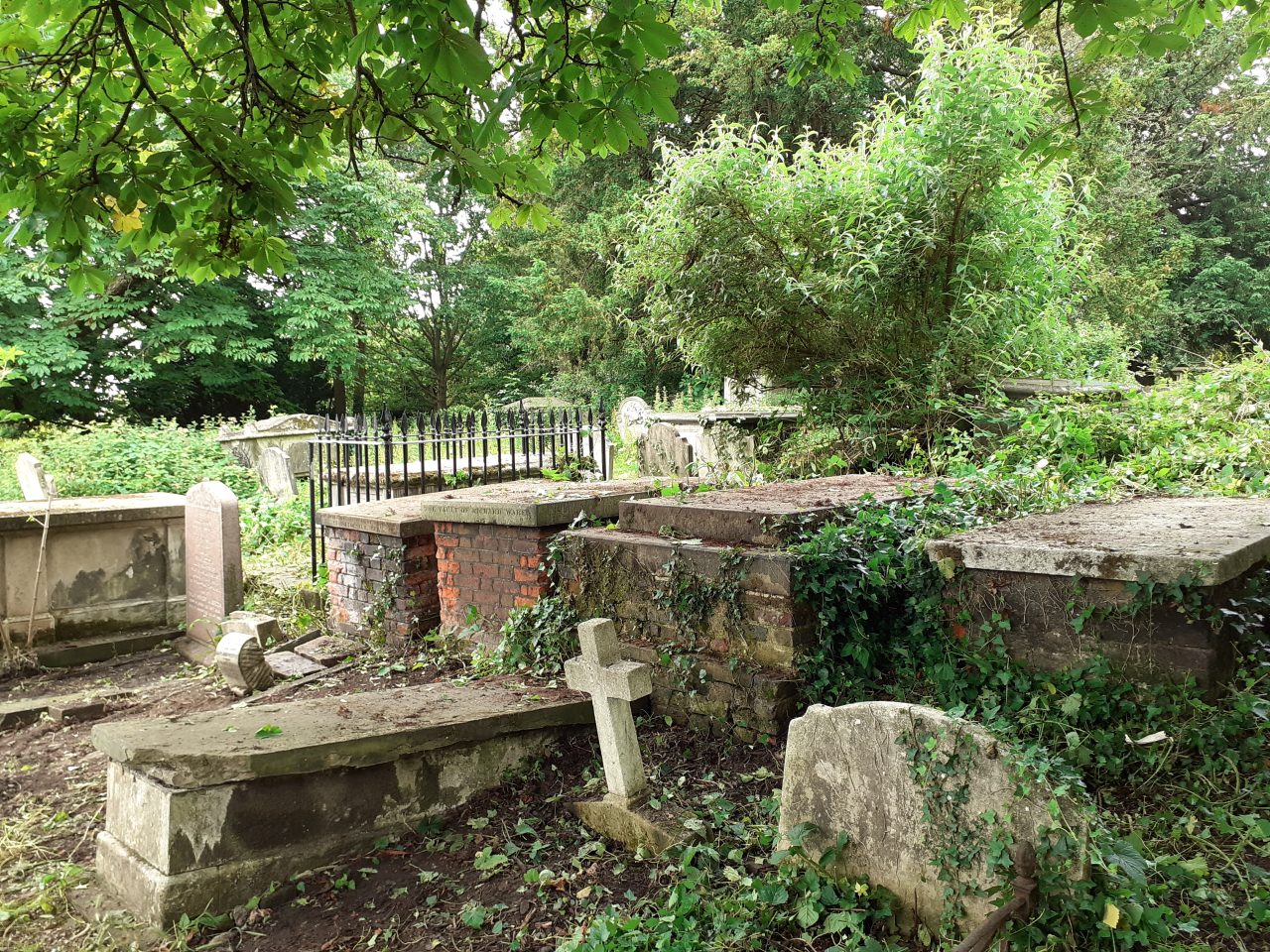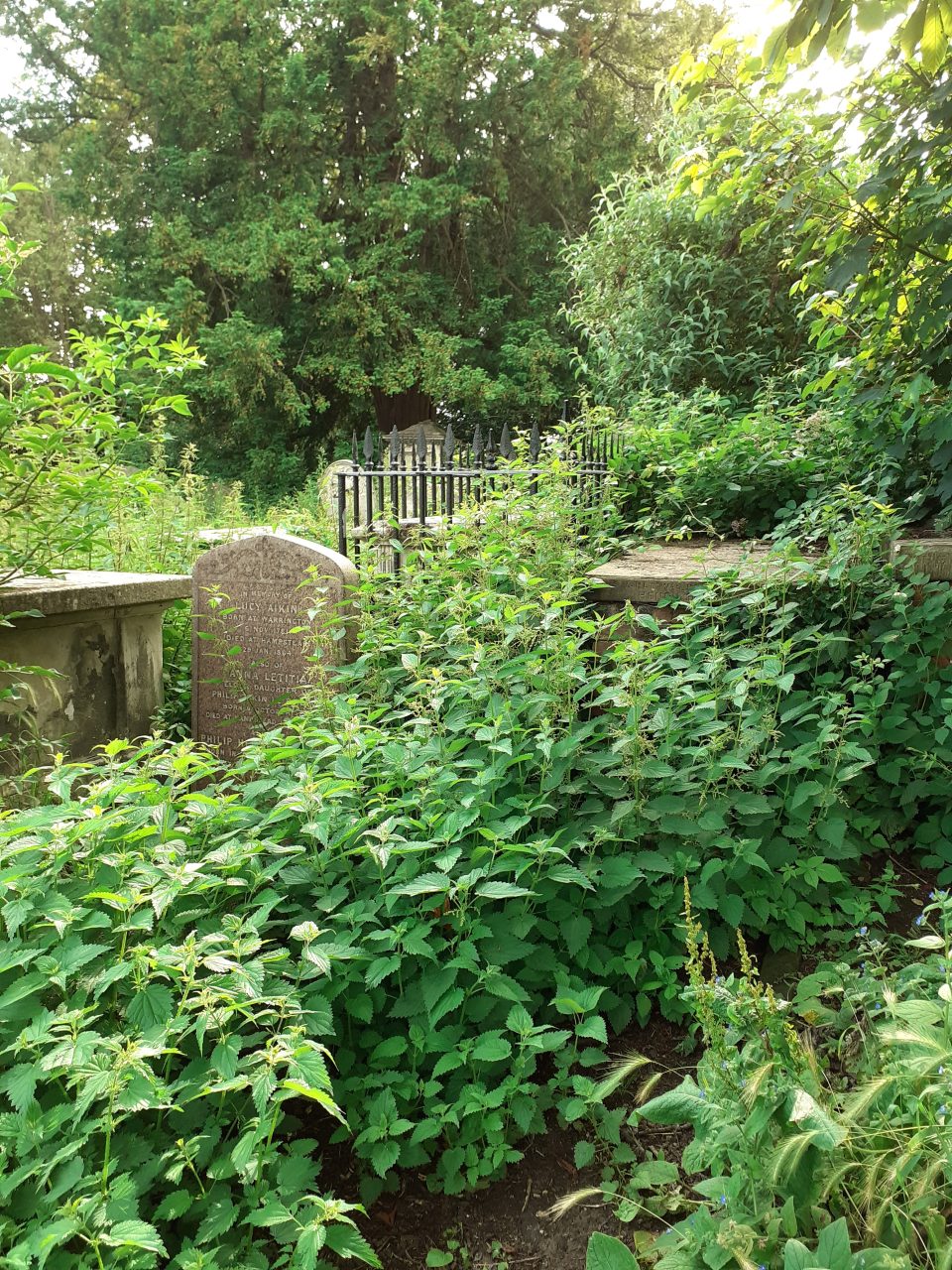Joanna Baillie (1762-1851) – who was she?
I am always pleasantly surprised when the response to “That’s Joanna Baillie’s grave” is met with “I didn’t know she was buried here” rather than “Who?” Although, frankly, if there hadn’t been a picture of her in the parish office I might never have got further than Who? either. Until recently though the response to any mention of her grave might have been “Where?” so overgrown had the area become. It is, perhaps, a consequence of our not-very-summery summer that the undergrowth has become overgrowth, and it’s quite hard to find anything at all. Last week’s gardening group remedied that. The photos show her grave before the gardening group got to work and them after we’d cleared the weeds (including the nettles!)


Joanna Baillie was born in Scotland in 1762 and lived much of her early life there, moving to Colchester and then finally Bolton House, Hampstead in 1802. She was a neighbour and close friend of writer Lucy Aikin (their graves are side by side).
Baillie’s writings included poetry and plays. She seems initially to have only written for her own enjoyment but once published became a shrewd businesswoman, using her income to help other writers and charitable causes.
You can read about her in detail on Wikipedia from which I chose this paragraph:
“Few women writers have received such praise for their personal qualities and literary powers as Joanna Baillie. She had intelligence and integrity allied to a modest demeanour that made her, for many, the epitome of a Christian gentlewoman. She was shrewd, observant of human nature, and persistent to the point of obstinacy in developing her views and opinions. Her brand of drama remained essentially unchanged throughout her life, and she took pride in having carried out her major work, the Plays on the Passions*, more or less in the form she had originally conceived. Her inventive faculties were widely remarked upon by “practically everybody whose opinion on a literary matter was worth anything” and she was on friendly terms with the leading women writers of her time.”
*It’s sometimes suggested that Baillie wrote “A Passion Play”. She didn’t. Her Passions were Love, Hate, Ambition – sometimes comedies, sometimes tragedies. They were well received and Baillie herself thought them some of her best work and pushed for them to be published in one volume. Now available from such websites as World of Books and Amazon the strap line reads “A series of plays in which it is attempted to delineate the stronger passions of the mind.”
She knew and corresponded with Sir Walter Scott, was a friend of Lady Byron (she had a poor opinion of Lord Byron’s works), she was compared to Sappho, her plays were widely performed in the UK and USA, and her poetry translated into Singalese and German. An entry in the Camden History Society records describes her as the “most famous dramatist of her time”. And yet we hardly know her.